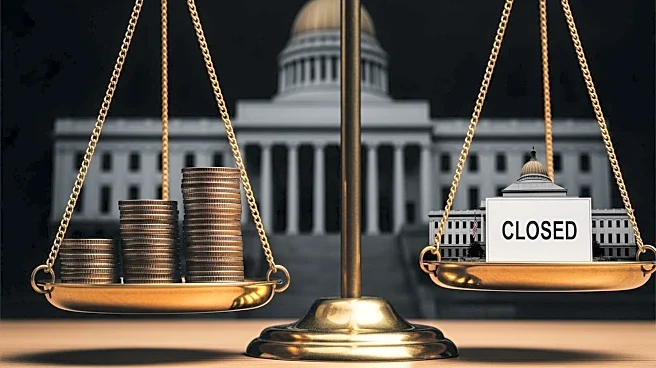What's Happening?
The U.S. national debt has reached a record $38 trillion, marking the fastest accumulation of a trillion dollars outside of the COVID-19 pandemic. This development occurs during a federal government shutdown,
highlighting concerns over fiscal management. The debt increase is attributed to a combination of factors, including rising interest costs and a lack of spending discipline. The Government Accountability Office has noted that the growing debt could lead to higher borrowing costs, lower wages, and increased prices for goods and services. Michael Peterson of the Peter G. Peterson Foundation emphasized the urgency of addressing the debt to prevent further economic harm.
Why It's Important?
The rising national debt poses significant challenges for the U.S. economy, potentially affecting various stakeholders. Higher interest costs could crowd out essential public and private investments, impacting economic growth. Consumers may face increased costs for mortgages and other loans, while businesses might reduce investments due to higher borrowing costs. The situation underscores the need for effective fiscal policies to manage the debt and ensure economic stability. The ongoing government shutdown further complicates the issue, as it incurs additional costs and disrupts government operations.
What's Next?
The government shutdown and rising debt levels are likely to prompt discussions among lawmakers about fiscal responsibility and potential policy measures. Stakeholders, including political leaders and economic analysts, may push for strategies to curb spending and increase revenue. The situation could lead to debates on budget priorities and the need for reforms to address the structural causes of the debt increase. Monitoring the government's response and any legislative actions will be crucial in assessing the future trajectory of the national debt.









